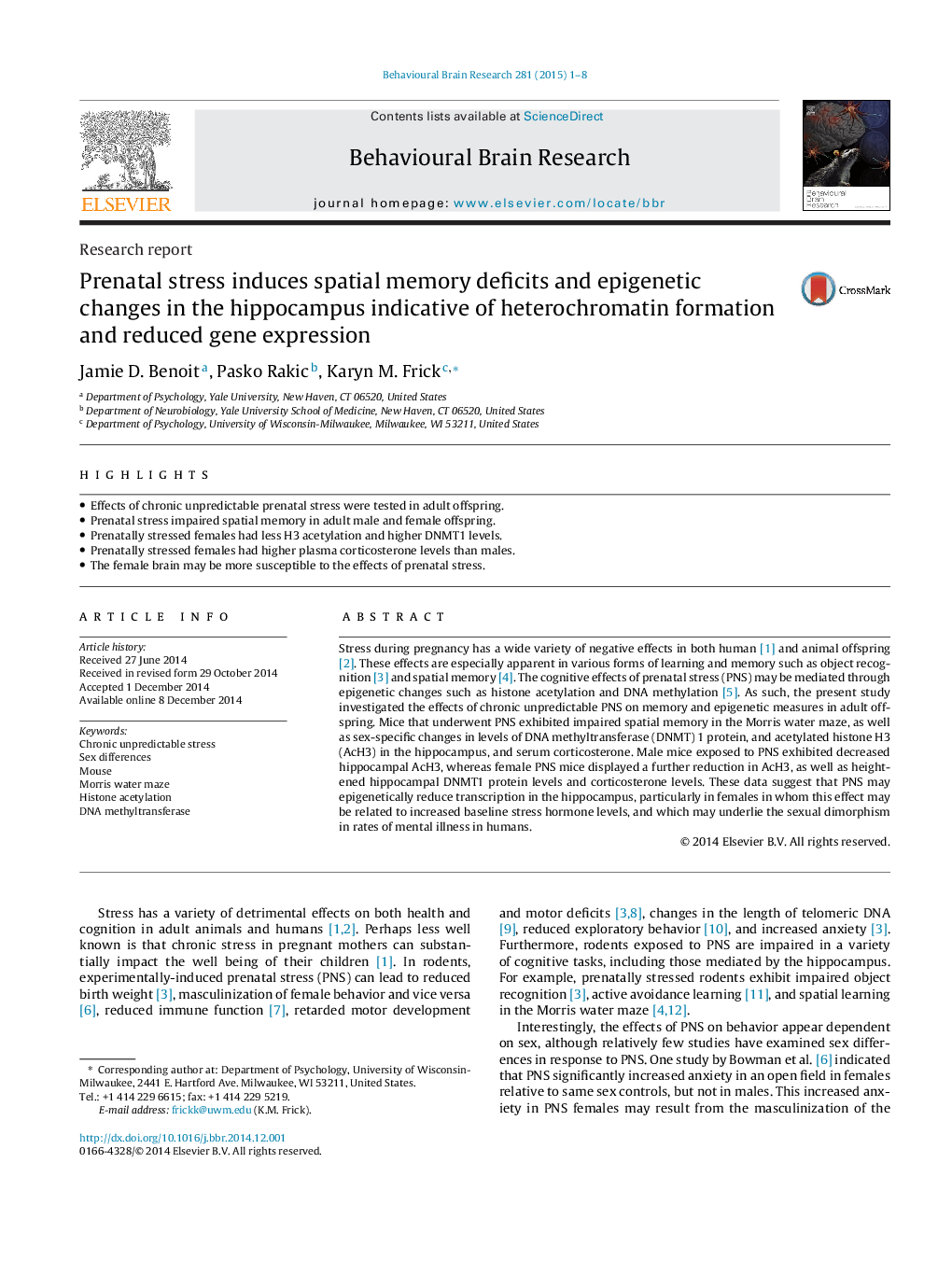| کد مقاله | کد نشریه | سال انتشار | مقاله انگلیسی | نسخه تمام متن |
|---|---|---|---|---|
| 6256951 | 1612951 | 2015 | 8 صفحه PDF | دانلود رایگان |
- Effects of chronic unpredictable prenatal stress were tested in adult offspring.
- Prenatal stress impaired spatial memory in adult male and female offspring.
- Prenatally stressed females had less H3 acetylation and higher DNMT1 levels.
- Prenatally stressed females had higher plasma corticosterone levels than males.
- The female brain may be more susceptible to the effects of prenatal stress.
Stress during pregnancy has a wide variety of negative effects in both human [1] and animal offspring [2]. These effects are especially apparent in various forms of learning and memory such as object recognition [3] and spatial memory [4]. The cognitive effects of prenatal stress (PNS) may be mediated through epigenetic changes such as histone acetylation and DNA methylation [5]. As such, the present study investigated the effects of chronic unpredictable PNS on memory and epigenetic measures in adult offspring. Mice that underwent PNS exhibited impaired spatial memory in the Morris water maze, as well as sex-specific changes in levels of DNA methyltransferase (DNMT) 1 protein, and acetylated histone H3 (AcH3) in the hippocampus, and serum corticosterone. Male mice exposed to PNS exhibited decreased hippocampal AcH3, whereas female PNS mice displayed a further reduction in AcH3, as well as heightened hippocampal DNMT1 protein levels and corticosterone levels. These data suggest that PNS may epigenetically reduce transcription in the hippocampus, particularly in females in whom this effect may be related to increased baseline stress hormone levels, and which may underlie the sexual dimorphism in rates of mental illness in humans.
Journal: Behavioural Brain Research - Volume 281, 15 March 2015, Pages 1-8
